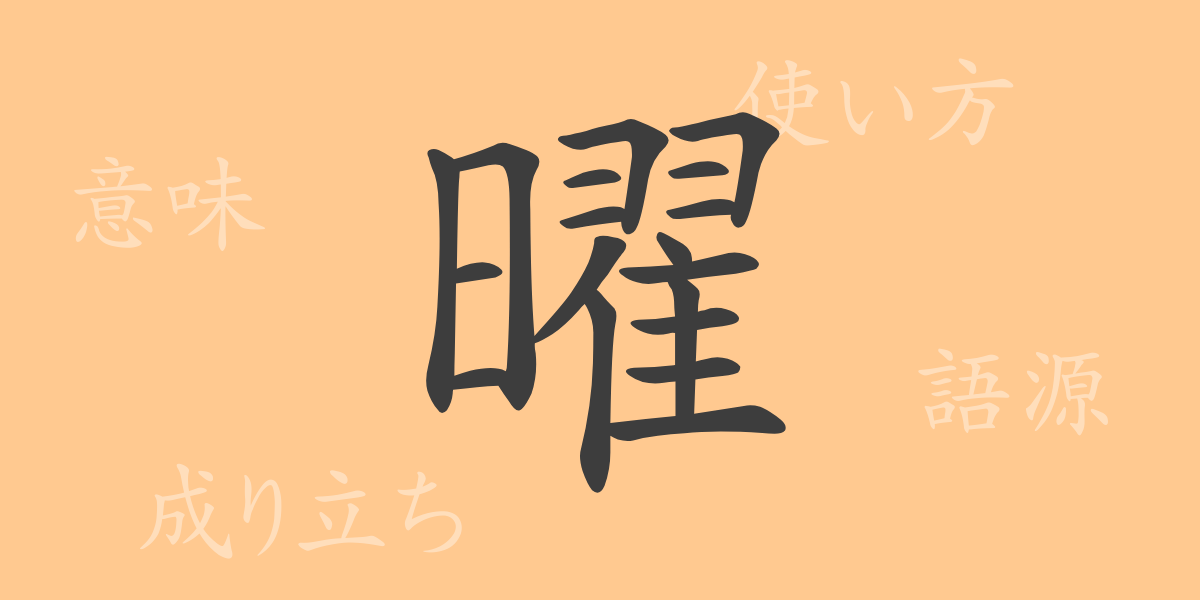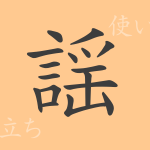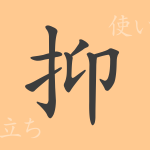Kanji, deeply rooted in Japanese culture, carries rich history and meaning within each character. Among them, “曜” (yō) plays a significant role in our daily lives, yet its background story and detailed meanings are surprisingly less known. In this article, we will delve into the origins, meanings, usage, and even idiomatic expressions of the commonly used kanji “曜” (yō), revealing its full charm.
Origins of 曜 (yō)
The kanji “曜” (yō) has been used in ancient China with astronomical significance. This character combines “日” (nichi, sun) and “翟” (teki, a bird), symbolizing celestial bodies moving across the sky like birds flying around the sun. In ancient Chinese astronomy, it was believed that these celestial bodies influenced people’s lives on a weekly cycle, as represented by the term “七曜” (shichiyō, seven luminaries: Sun, Moon, Mars, Mercury, Jupiter, Venus, and Saturn).
Meaning and Usage of 曜 (yō)
In modern Japanese, “曜” (yō) is primarily used to denote days of the week. It appears in terms like “日曜日” (nichiyōbi, Sunday), “月曜日” (getsuyōbi, Monday), “火曜日” (kayōbi, Tuesday), “水曜日” (suiyōbi, Wednesday), “木曜日” (mokuyōbi, Thursday), “金曜日” (kin’yōbi, Friday), and “土曜日” (doyōbi, Saturday), playing a crucial role in determining our daily rhythms and schedules. This kanji is frequently seen in school timetables and company shift schedules.
Reading, Stroke Count, and Radical of 曜 (yō)
The kanji “曜” (yō) might seem challenging to remember due to its complex reading and structure. However, understanding its meaning and usage can deepen one’s comprehension of the Japanese language.
- Reading: On’yomi (Chinese reading) “ヨウ” (yō); it has no Kun’yomi (Japanese native reading).
- Stroke Count: 18 strokes
- Radical: 曰 (etsu, sun)
Idiomatic Expressions and Proverbs Using 曜 (yō)
Idiomatic expressions and proverbs containing “曜” (yō) are frequently used in daily life. For instance, “曜日” (yōbi) refers to days of the week, and “七曜” (shichiyō) means the seven days of the week. Additionally, “曜変天目” (yōhen tenmoku) refers to a type of black-glazed tea bowl from the Song dynasty in China, named after celestial changes. These expressions highlight the importance of “曜” (yō) in the Japanese language.
Summary of 曜 (yō)
At first glance, the kanji “曜” (yō) might seem like just a character indicating days of the week, but it carries a rich history and cultural significance. From its astronomical origins to its indispensable role in daily life, this kanji is used in various contexts. Reflecting on the meaning of “曜” (yō), which we naturally use in our lives, may be a way to deepen our understanding of language.

























